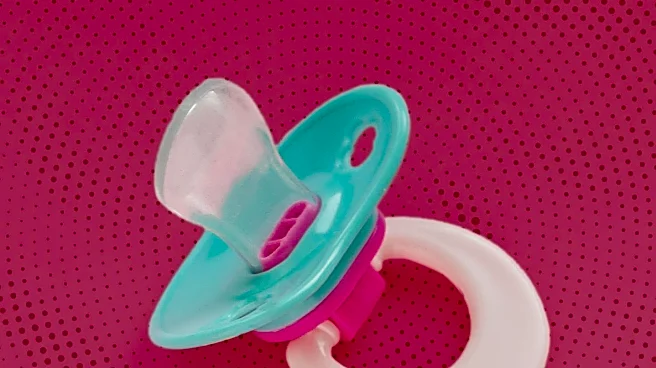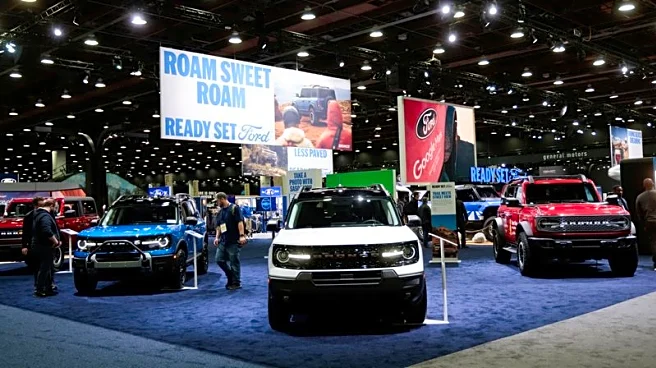What's Happening?
A study by the Czech consumer organization dTest found bisphenol A (BPA), a chemical linked to cancer and developmental disorders, in baby pacifiers from three major European brands. Despite being labeled
as 'BPA-free,' pacifiers from Philips, Curaprox, and Sophie la Girafe contained BPA, with Curaprox exceeding EU limits. The findings raise concerns about the accuracy of product labeling and the potential health risks to infants.
Why It's Important?
The presence of BPA in baby pacifiers is significant due to its potential health impacts, including cancer, obesity, and developmental issues. Infants are particularly vulnerable to endocrine-disrupting chemicals like BPA, which can affect hormonal processes even at low concentrations. The study highlights the need for stricter regulations and reliable labeling to ensure consumer safety, especially for products intended for children.
What's Next?
Curaprox has decided to withdraw the affected pacifiers from the market and offer refunds, while Philips and Sophie la Girafe have disputed the findings. The study may lead to increased scrutiny of product safety standards and labeling practices in the EU, potentially prompting regulatory changes to protect consumers.
Beyond the Headlines
The discovery of BPA in pacifiers may drive further research into the prevalence of endocrine-disrupting chemicals in consumer products. It also raises ethical questions about corporate responsibility and transparency in product labeling, emphasizing the need for accountability in the manufacturing industry.












